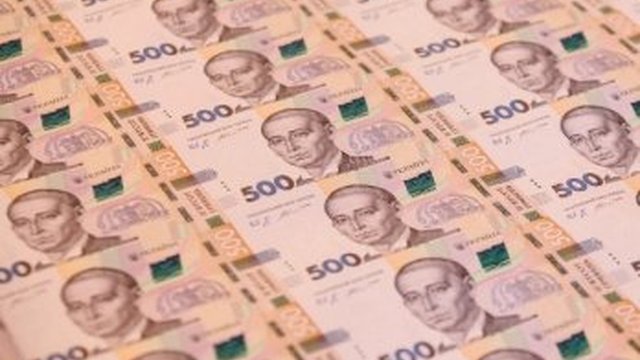Rada redirects 'military' income tax from local budgets to state budget until end of war – law

The Verkhovna Rada on Wednesday, with 253 supporting votes, adopted bill No. 10037 on the redirection of the so-called "military" personal income tax from local budgets to the state budget to channel these funds primarily to the purchase of drones and weapons, Head of the parliamentary budget committee Roksolana Pidlasa has said.
"The key provisions of the bill: the revenues of the Road Fund in 2024 are sent to the general fund of the state budget and are allocated for defense needs. "Military" personal income tax from October 1, 2023 to December 31 of the year in which martial law ends is sent to the state budget," she wrote on Facebook.
Earlier Finance Minister Serhiy Marchenko said that it concerns additional state budget receipts from the "military" personal income tax of UAH 25.8 billion in 2023 and about UAH 96 billion in the next year, as well as about UAH 95 billion of funds that would have to go to the Road Fund from excise taxes.
Pidlasa said that from October 1 to December 31, 2023, "military" personal income tax is sent to the state budget in the proportion of 50% to 50%: to the State Special Communications Service for drones (UAH 13 billion) and the Ministry of Defense for the purchase of artillery systems (UAH 13 billion).
Starting next year and until the end of martial law, according to her, "military" personal income tax is distributed in the following proportions: 45% to the State Special Communications Service for drones, 45% to the Ministry of Strategic Industries for the deployment of the production of ammunition and weapons, and 10% to managers of the security and defense sector for automatic distribution between military units in proportion to the personal income tax paid (about UAH 10 billion).
The head of the committee said that the "regular" personal income tax remains in communities in the amount of 64% (at the same time, at least 4% of the tax should be directed to making payments for the production of thermal energy, as well as to supporting enterprises producing, supplying thermal energy, as well as centralized cold water supply and drainage).
Other norms of the adopted law are the refusal in 2024 to withdraw reverse subsidies from local budgets (UAH 14.1 billion, according to the Ministry of Finance) and to subsidize all communities to the 2021 income level with additional subsidies (UAH 33.4 billion, according to the Ministry of Finance).
"Villages and settlements will have the opportunity to carry out internal and external borrowings in agreement with the Ministry of Finance (currently only urban communities can carry them out), balances in the accounts of compulsory medical insurance (local self-government bodies) can only be used for priority expenses: social, defense support, treatment and rehabilitation of persons , victims of Russian aggression, etc. No construction," Pidlasa also said.
According to estimates by the Centre for Economic Strategies (CES), in the first nine months of this year, 154 local budgets in Ukraine had deficit. Assuming the withdrawal of "military" personal income tax of UAH 78.4 billion, their number would increase to 492 with a total deficit of UAH 31.2 billion, while 966 budgets would be in surplus with a total surplus of UAH 47.5 billion. Refusal to withdraw reverse subsidies would reduce the number of deficit budgets without "military" personal income tax to 465.
The CES believes that the provided additional subsidies of UAH 33.4 billion in 2024 should be enough to level out significant local budget deficits, the total volume of which is now projected at about UAH 41 billion.









